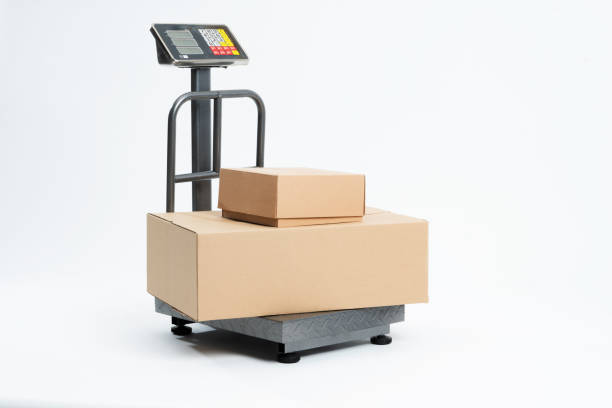In industrial operations, precision, efficiency, and reliability are non-negotiable. Among the many tools and technologies that power these industries, platform scales hold a pivotal role. From warehouses to manufacturing plants and logistics hubs, platform scales provide an essential solution for weighing goods with accuracy and ease.
What Are Platform Scales?
Platform scales are heavy-duty weighing devices designed to handle large and bulky loads. They consist of a robust weighing platform connected to a digital or analog display unit, which provides real-time weight readings. Available in a variety of sizes and capacities, platform scales cater to diverse industrial needs.
Their durability and versatility make them indispensable across sectors such as logistics, manufacturing, agriculture, and retail. Whether weighing raw materials, finished goods, or pallets, platform scales ensure accuracy and consistency in every measurement.
Applications of Platform Scales in Industrial Operations
- Warehousing and Logistics
In warehouses and distribution centers, platform scales streamline inventory management. They help accurately weigh pallets, crates, and packages before shipping or storage. This ensures goods comply with weight regulations, minimizing errors in freight calculations and reducing the risk of penalties. - Manufacturing
Manufacturing facilities rely on platform scales to measure raw materials and monitor the weight of finished products. This precision is crucial for maintaining quality control, ensuring that each product meets specified weight standards. - Agriculture and Farming
Platform scales are frequently used to weigh produce, livestock, and agricultural supplies. By providing accurate weight data, these scales support fair trade practices and efficient supply chain management. - Retail and Commercial Use
Retailers use platform scales to weigh bulk products like grains, vegetables, and hardware. Their ease of use and accuracy enhance customer satisfaction by ensuring fair and transparent transactions. - Recycling and Waste Management
In recycling and waste management, platform scales are instrumental in tracking the weight of recyclable materials or waste loads. This data is critical for regulatory compliance and optimizing waste disposal processes.
The Advantages of Using Platform Scales
- Accuracy and Precision
Accurate weight measurements are crucial in industrial operations. Platform scales eliminate guesswork, ensuring precise results that enhance overall process efficiency. - Durability and Robustness
Built with industrial-grade materials, platform scales withstand heavy loads, rough handling, and harsh environments. This durability translates into a longer lifespan and reliable performance. - Ease of Integration
Modern platform scales can be easily integrated with existing systems such as inventory management software or conveyor belts. This seamless connectivity streamlines operations and enhances productivity. - Time-Saving Features
Platform scales with automated functions, such as tare weight and accumulation features, save valuable time in repetitive weighing tasks. - Improved Safety
By reducing manual handling of heavy loads, platform scales minimize the risk of workplace injuries. This contributes to a safer and more efficient working environment.
How Platform Scales Unlock Efficiency in Industrial Operations
1. Streamlining Processes
Platform scales are designed to simplify complex weighing tasks. By automating the weighing process, they reduce human error and improve consistency. For instance, in assembly lines, platform scales ensure that products are weighed efficiently without disrupting the flow of operations.
2. Enhancing Inventory Management
In logistics and warehousing, knowing the exact weight of goods allows for better inventory control. Platform scales provide real-time data that can be directly integrated into inventory systems, enabling accurate stock tracking and reducing discrepancies.
3. Optimizing Transportation
Overloaded vehicles can lead to fines and potential safety hazards. Platform scales prevent such issues by ensuring that shipments comply with weight regulations. They also help optimize load distribution, improving fuel efficiency and reducing transportation costs.
4. Supporting Regulatory Compliance
Many industries are subject to strict regulations regarding the weight of goods. Platform scales help businesses stay compliant by providing accurate weight measurements and detailed records for audits or inspections.
5. Boosting Productivity
By minimizing manual tasks, platform scales free up employees to focus on other critical operations. Their efficiency and ease of use contribute to a smoother workflow, reducing downtime and boosting productivity.
Key Features to Look for in Platform Scales
- Capacity and Size
Choose a scale with a capacity and platform size that meets your specific needs. Industrial operations often require high-capacity scales for heavy loads. - Digital vs. Analog
Digital platform scales offer advanced features like data storage, connectivity, and precision. Analog scales, while simpler, are robust and reliable in basic weighing tasks. - Portability
Some platform scales are equipped with wheels or foldable designs, making them easy to move across different locations. - Customizability
Many platform scales can be customized with additional features such as ramps, guardrails, or specialized software. - Connectivity
Modern scales come with options for Bluetooth, Wi-Fi, or USB connectivity, enabling seamless integration with other devices and systems.
Maintaining Platform Scales for Longevity and Performance
To ensure optimal performance, platform scales require regular maintenance. Here are some tips:
- Calibration
Regular calibration is essential to maintain accuracy. Many manufacturers recommend annual calibration, but this frequency may vary based on usage. - Cleaning
Keep the platform clean and free from debris to prevent inaccuracies. Use mild cleaning agents to avoid damaging the surface. - Inspect for Damage
Periodically check for signs of wear and tear, such as cracks or loose components, and address issues promptly. - Software Updates
If your scale is equipped with software, ensure it is updated regularly to maintain compatibility and functionality. - Proper Storage
Store the scale in a dry and secure location when not in use to prevent exposure to harsh elements.
Conclusion
Platform scales are an indispensable part of industrial operations, delivering unparalleled precision, efficiency, and reliability. By streamlining processes, optimizing inventory, and ensuring compliance, they help businesses achieve operational excellence. As technology evolves, platform scales continue to adapt, offering even greater capabilities to meet the demands of modern industries.
Investing in the right platform scale is not just a matter of convenience—it’s a strategic move towards enhancing productivity and staying competitive in today’s fast-paced industrial landscape.

